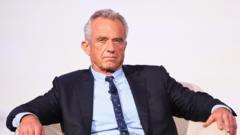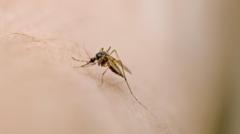A recent focus on dwindling vaccination rates has raised alarms about the possible resurgence of polio, a disease once thought to be eradicated in most regions.
Polio Resurgence: The Dangers of Declining Vaccination Rates

Polio Resurgence: The Dangers of Declining Vaccination Rates
The potential rebound of polio due to stagnant vaccination efforts poses a serious public health threat.
As we reflect on the near eradication of polio in the United States, a concerning trend has emerged: a decline in vaccination rates that could pave the way for a resurgence of the virus. Polio, which once afflicted thousands and resulted in widespread fear, has seen a dramatic reduction in cases, attributed largely to the efficacy of vaccines. Yet, the emergence of vaccine-derived strains, particularly linked to oral vaccinations used in other areas of the world, has introduced new risks.
Historically, polio paralyzed approximately 20,000 Americans annually before the introduction of vaccines shifted the tide. With only one case reported in the U.S. in recent years, sourced from international travel, many parents no longer view polio as a looming threat. However, the landscape is changing. Vaccine skepticism, championed by figures like Robert F. Kennedy Jr., has gained traction, casting doubt on the importance and efficacy of vaccination in protecting against polio. Kennedy's claims challenge the consensus within the medical community that vaccines are essential for preventing such infectious diseases.
Kennedy has vehemently stated that vaccination against polio is overblown and perpetuates a myth of safety. Although acknowledges the past instances of vaccine contamination, he erroneously connects them to cancer risks, disregarding the comprehensive research that has examined these claims critically.
Public health officials are issuing warnings: renewed efforts are needed to bolster vaccination rates and ensure widespread access to the vaccine. While the reported infections from polio remain low, the combination of hesitancy and decreased vaccination stances could set the stage for a comeback of this potentially devastating disease. Efforts toward education and outreach will be crucial in maintaining the progress made against polio and protecting future generations from its impact.
As we look toward the future, it becomes imperative that communities rally around vaccination efforts, reaffirming their importance in public health to mitigate any risks of resurgence.
Historically, polio paralyzed approximately 20,000 Americans annually before the introduction of vaccines shifted the tide. With only one case reported in the U.S. in recent years, sourced from international travel, many parents no longer view polio as a looming threat. However, the landscape is changing. Vaccine skepticism, championed by figures like Robert F. Kennedy Jr., has gained traction, casting doubt on the importance and efficacy of vaccination in protecting against polio. Kennedy's claims challenge the consensus within the medical community that vaccines are essential for preventing such infectious diseases.
Kennedy has vehemently stated that vaccination against polio is overblown and perpetuates a myth of safety. Although acknowledges the past instances of vaccine contamination, he erroneously connects them to cancer risks, disregarding the comprehensive research that has examined these claims critically.
Public health officials are issuing warnings: renewed efforts are needed to bolster vaccination rates and ensure widespread access to the vaccine. While the reported infections from polio remain low, the combination of hesitancy and decreased vaccination stances could set the stage for a comeback of this potentially devastating disease. Efforts toward education and outreach will be crucial in maintaining the progress made against polio and protecting future generations from its impact.
As we look toward the future, it becomes imperative that communities rally around vaccination efforts, reaffirming their importance in public health to mitigate any risks of resurgence.






















